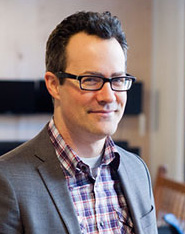European Russophobia and Europe’s Rejection of Peace: A Two-Century Failure
Europe has repeatedly rejected peace with Russia at moments when a negotiated settlement was available, and those rejections have proven profoundly self-defeating. Read more
 Clive Thompson
Clive Thompson
If you drive out to visit Disney's Epcot center in Orlando, Florida, you will arrive at one of the biggest parking lots in America. With room for 12,000 cars, it sprawls out over 7 million square feet—about the size of 122 football fields. If you look at the lot on Google Maps, you realize that it's nearly the size of Epcot center itself. Disney built one Epcot to hold the visitors. Then it built another to hold the cars.
Disney isn't alone in its expansive approach to parking. Parking is, after all, what cars do most of the time: The average automobile spends 95 percent of its time sitting in place. People buy cars because they need to move around, but the amount of time they actually do move around is tiny. So the cars are parked, and in multiple spaces: A car owner needs a spot near home, but also spots near other places he or she might go—the office, a shopping mall, Epcot.
Meet "Sledgehammer Shannon," Uber's Worst Nightmare
A 2011 study at the University of California-Berkeley found that the United States has somewhere close to a billion parking spots. Since there are only 253 million passenger cars and light trucks in the country, that means we have roughly four times more parking spaces than vehicles. If you totaled up all the area devoted to parking, it'd be roughly 6,500 square miles, bigger than Connecticut.
Social critics often complain that the interstate highway system deformed the United States by encouraging sprawl. But the metastasizing of parking has had equally profound effects. On an aesthetic level, it makes cities grimly ugly. Economically, it is expensive to build. A study by the Sightline Institute found that at least 15 percent of the price of rent in Seattle stemmed from developers' cost of building parking.
The article's full-text is available here.